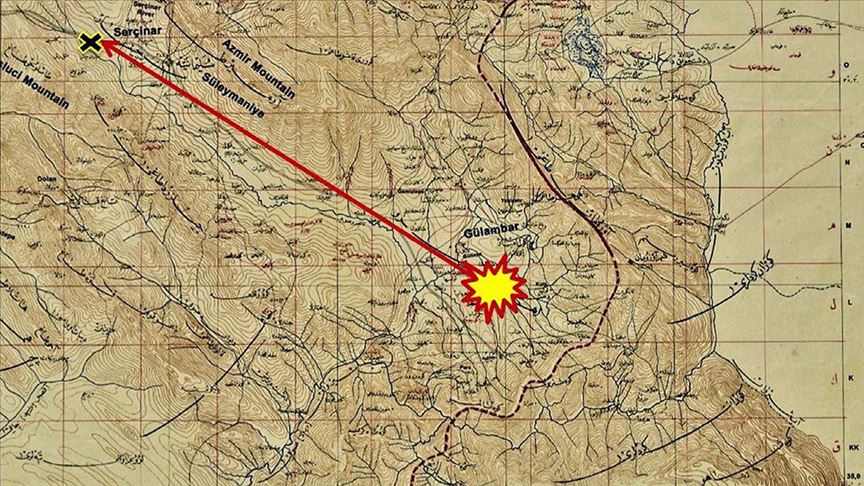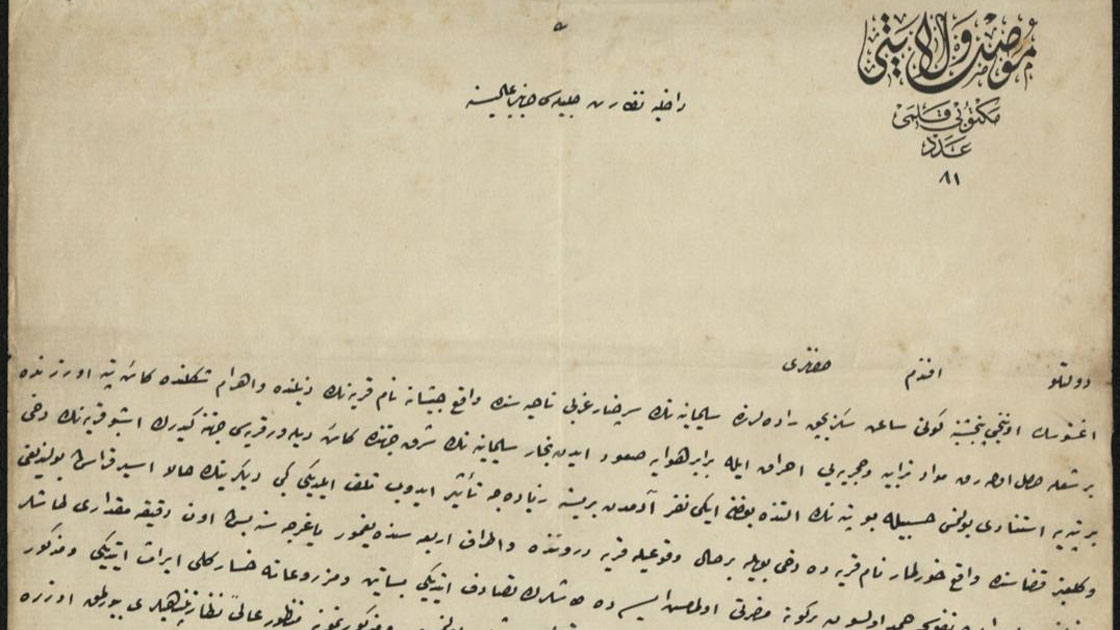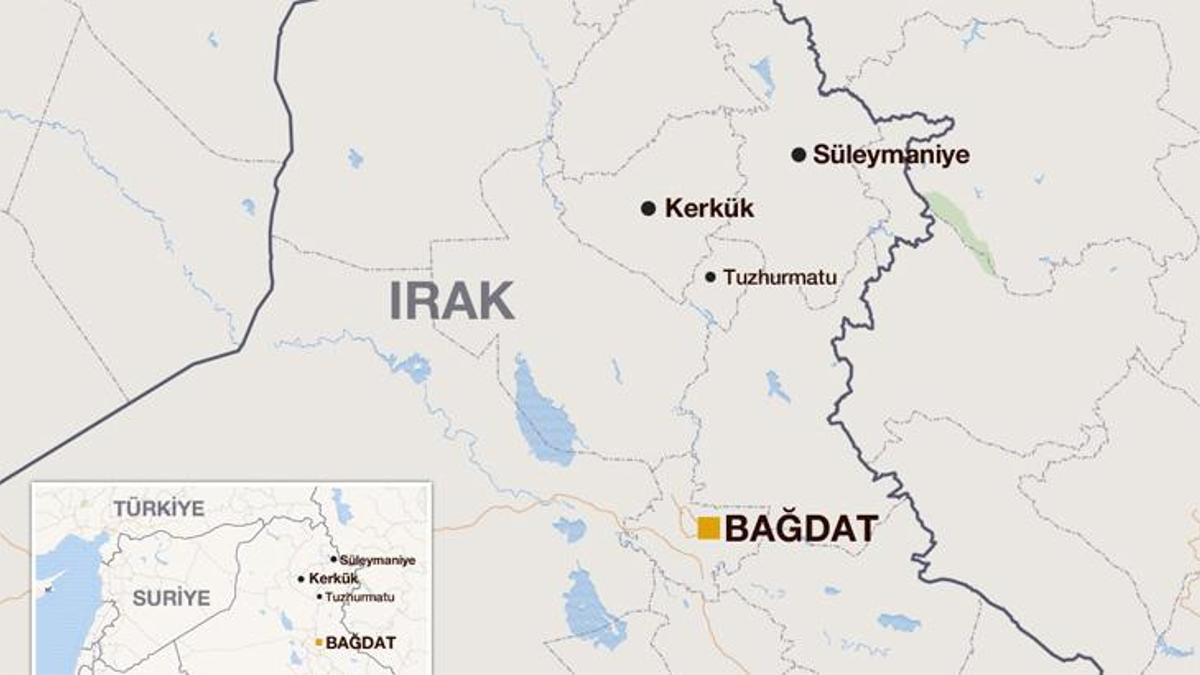türkçe links to original Turkish article
(Anatolian News Agency (AA), 28 April 2020)
//Ed. note: this article slipped through TNT's usually
dependable collection net. It is only thanks to a
confidential TNT source we'll call "MELEK" that TNT
can present this today.//
Turkish meteorites click here for previous TNT reporting
on this subject.

'X 'marks the spot.
A meteorite struck and killed an individual in Mosul, Iraq on 22
August 1888, according to information obtained from the Ottoman
archives. Altay Bayatlı, a doctoral student, archeologist and art
historian in Trakya University's History Department, wrote about the
incident after researching it together with Dr. Ozan Ünsalan, of Ege
University's Physics Department, and Dr. Peter Jenniskens, from the
NASA-SETI Institute.
Bayatlı, who has been researching Ottoman history for years, explained
to AA that he came upon the interesting and important document in the
Ottoman State Archives: "the document, written in very good Ottoman,
caught my interest. It described how a meteorite that fell in Iraq's
Mosul province had struck and killed a person in the Süleymaniye
region. Up to now in world history, there has never been a recorded
account of a meteor strike that directly resulted in a person's death."
Bayatlı, noting that Sultan Abdülhamid II gave great importance to
his intelligence-gathering net in that era, added that "at that time,
Sultan Abdülhamid wanted a continuous flow of information from
his regions, in the form of 'tahrirat' (official reports). The Mosul
governor, Darendeli Mustafa Faik Paşa, sent this one to Istanbul,
describing how rocks rained down from the sky, causing the death
of person and injuring another in Dilaver village, east of Süleymaniye.
This 'tahrirat' is important because it was the first to document such
an incident in the world."
Dr. Ünsalan stated that the publication of their related article had
prompted great excitement around the world and in Turkey, although
"there has been some misinformation in the press reports, some of
which say that the effort was the result of the work of English scientists,
as if to say that some English scientists looked into our state archives
and uncovered the incident. Yet, this work was all done in Turkey
cooperatively by Turkish scholars from different disciplines. As the
result of a contribution from NASA, this scientific work elicited a
worldwide reaction."

Other than a missing comma in line 4, the 'tahrirat' is
flawless.
Dr. Ünsalan explained that meteors lose 95% of their mass as they
pass through the Earth's atmosphere at high speed. He noted that "last
year there was a meteorite incident in Sarıçiçek village of Bingöl
province. The meteor weighed about 4 tons before it entered the
atmosphere, but by the time it hit the ground the remaining mass
weighed only 17-20 kilograms."
Continuing, Dr. Ünsalan related that, while all meteors don't reach the
Earth's surface, "this is not to say that a meteor couldn't strike the Earth
and kill someone. We are face to face with such an incident from
Ottoman times, when a meteor fell to Earth, broke up and struck one
person who died and another who was paralyzed from the strike. This
was an exceptionally rare incident, experienced during the Ottoman
period. As the result of our research, I and Altay Bayatlı and Dr. Peter
Jenniskens published an article in an international journal. On behalf
of Turkey, we are very proud of this."

Earth's surface, "this is not to say that a meteor couldn't strike the Earth
and kill someone. We are face to face with such an incident from
Ottoman times, when a meteor fell to Earth, broke up and struck one
person who died and another who was paralyzed from the strike. This
was an exceptionally rare incident, experienced during the Ottoman
period. As the result of our research, I and Altay Bayatlı and Dr. Peter
Jenniskens published an article in an international journal. On behalf
of Turkey, we are very proud of this."


Hiç yorum yok:
Yorum Gönder